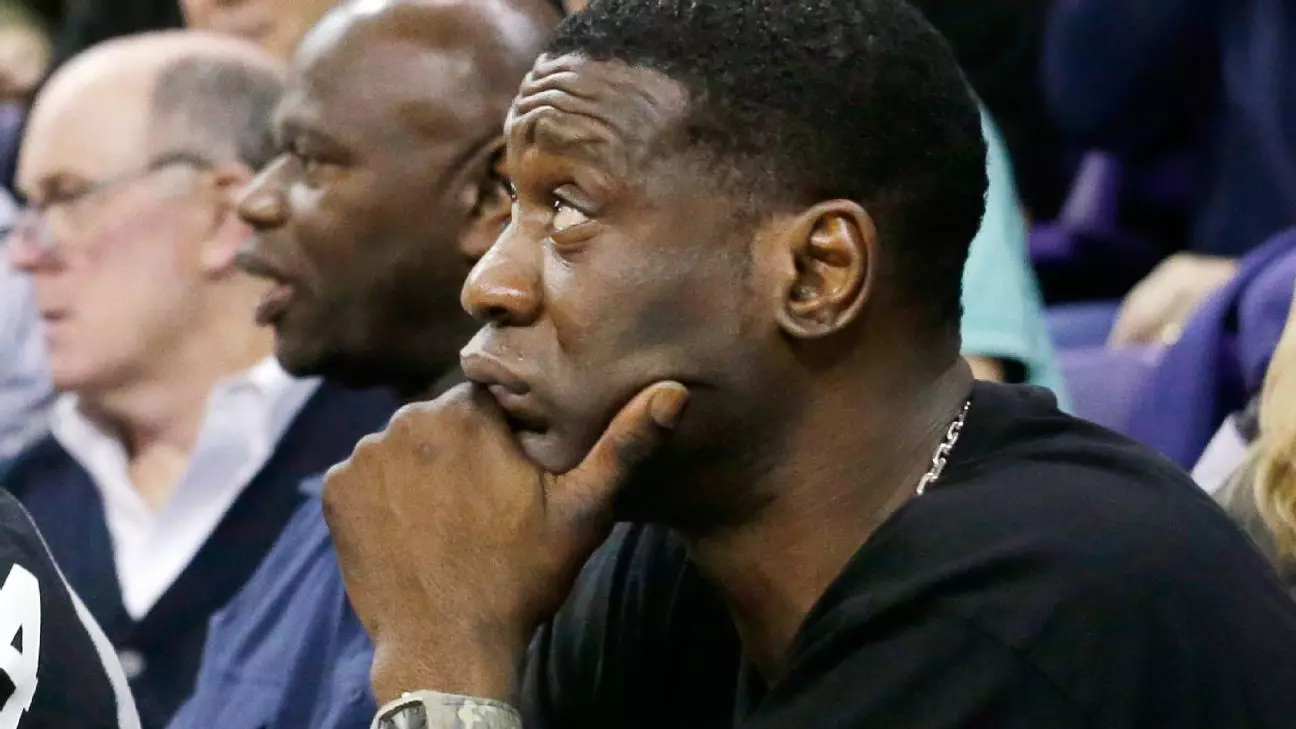In an unsettling turn of events that leaves fans and the sports community in disbelief, Shawn Kemp, the former NBA star widely regarded for his explosive athleticism and skill, found himself on the wrong side of the law. The 55-year-old basketball legend pleaded guilty to second-degree assault after a shooting incident at a mall parking lot in Tacoma, Washington. This case reverberates not just due to Kemp’s fame, but because it underscores the complex layers surrounding celebrity, personal crises, and the question of accountability in a culture enamored with sports figures.
The March 2023 confrontation, which initially involved Kemp tracking down thieves who broke into his vehicle, spiraled into chaos and violence. Prosecutors indicated that while the Toyota 4Runner involved received extensive damage, the two men Kemp confronted did not sustain injuries. The decision to pursue a plea agreement signifies a tactical choice by Kemp to mitigate the severe repercussions that could arise from the original first-degree assault charge, which carried a harsher penalty.
The Context of Fury and Frustration
Kemp’s decision to confront the alleged thieves can be viewed through the lens of an escalating emotional spiral. As the owner of a cannabis dispensary, Kemp had his possessions—including crucial business-related documents and sentimental sports memorabilia—stolen from him. Faced with the loss of items that held not just financial, but sentimental value, Kemp’s response was arguably fueled by a mix of anger and desperation. It’s essential to contextualize this incident within the ongoing struggles that many former athletes face, particularly those transitioning out of the spotlight.
As Kemp’s legal representation indicated, the circumstances surrounding the altercation invited a degree of sympathy. His advocacy for self-defense raised pertinent questions: At what point does one justify a response that escalates from frustration to violence? In Kemp’s case, we see an urgent need for athletes to navigate their post-career lives with support systems that can help them manage the pressures that come with sudden fame and its shadow.
Legal Ramifications and Public Perception
Taking into account the broader societal implications, Kemp’s case is more than just a personal failing; it serves as a lens through which to scrutinize how we treat our sports icons after their playing days end. The plea agreement negotiated by Deputy Prosecuting Attorney Thomas Howe suggests a commitment to not only justice but also to recognizing the multifaceted nature of the situation. A sentence recommendation of nine months in jail, combined with oversight from the Department of Corrections, reflects an understanding that punitive measures must be balanced with the potential for rehabilitation.
Yet, the reaction to Kemp’s actions is not devoid of criticism. There exists a palpable tension between public admiration for stellar athletic achievement and the severe disappointment that inevitably arises when these figures stumble. Kemp’s silence during the media frenzy that followed his guilty plea is notable. While it may indicate a desire to move on positively, it also hints at the weight of public scrutiny and the fear of further tarnishing an already marred legacy.
Reflections on Celebrity Culture and Accountability
Kemp’s incident encapsulates a growing discourse on celebrity culture and its double-edged sword. The awe surrounding sports figures often eclipses their humanity, rendering them vulnerable to both adulation and vilification. The empty holster found in the abandoned 4Runner serves as a potent metaphor for the disarray of celebrity life—shining exteriors often hide tumultuous interiors filled with chaos, insecurity, and unaddressed grievances.
Will Kemp emerge from this dark chapter with insights that lead to personal growth and improved coping strategies? Such redemption arcs are common, yet the speed and efficacy of recovery depend heavily on one’s support network and self-awareness. As society looks on, we are left to ponder: How do we redefine our relationships with our idols when they falter? Is it possible to embrace vulnerability in a culture that often demands unyielding strength from its icons?
The challenges faced by Shawn Kemp highlight not only the potential for personal transformation amid turmoil but also our responsibility as a society to rethink how we engage with celebrity. It’s a delicate balance between revering greatness and confronting the imperfections of those we elevate.

